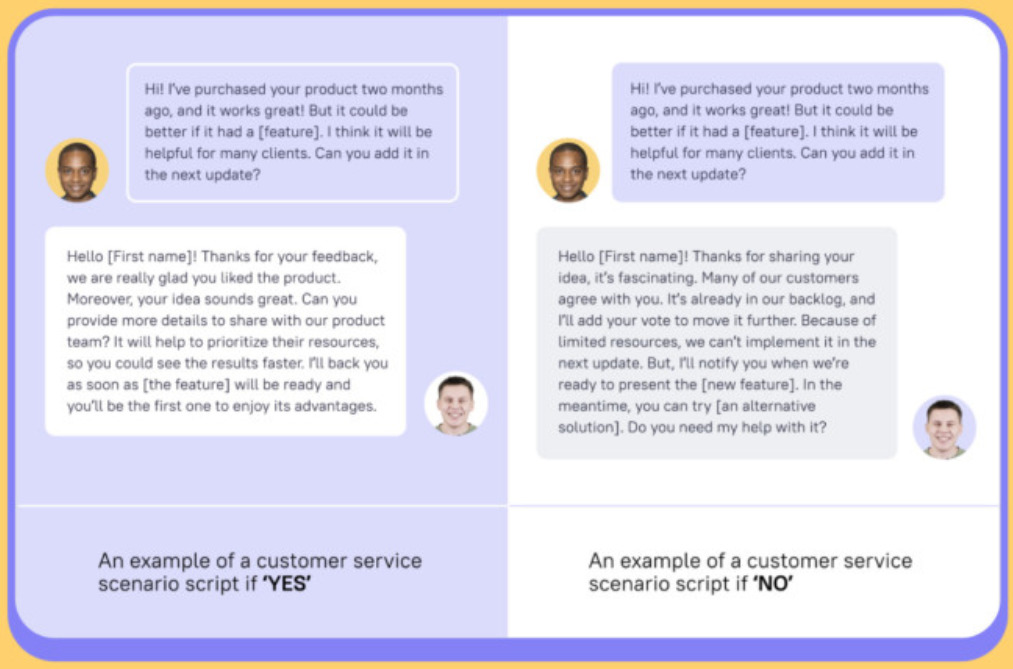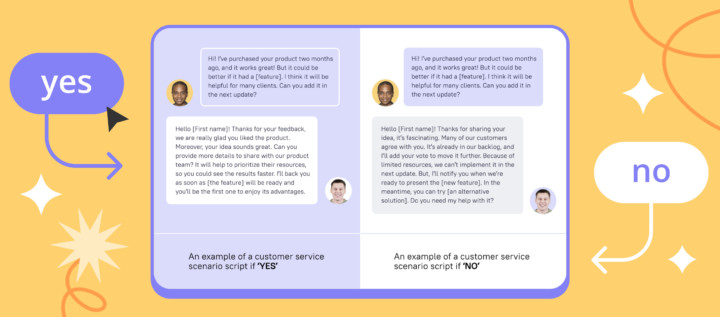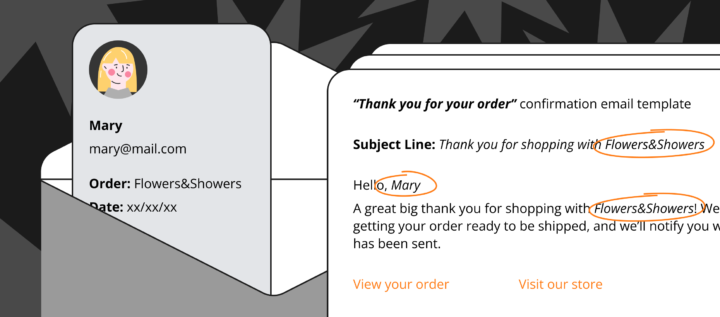How to deal with a frugal customer: best practices and script templates

In today’s rapidly evolving marketplace, frugality has emerged as a key driving force for customers across various sectors. As businesses and consumers alike continue to grapple with economic uncertainties and an ever-changing landscape, the pursuit of cost-effective solutions has become paramount.
This article delves into the mindset of the frugal customer, exploring the factors that contribute to their growing prominence and the strategies businesses can adapt to cater to this value-conscious segment effectively.
Join us as we uncover the motivations, challenges, and opportunities when dealing with the increasingly influential frugal customer.
Frugal customer vs Cheap customer
While frugal and cheap customers may appear similar at first glance, their motivations and behaviors differ significantly. Understanding these differences is essential for businesses looking to cater to these two distinct customer segments effectively.
Critical differences between frugal and cheap customers:
- Value vs. Price. Frugal customers prioritize value, seeking the best balance between quality and cost, while cheap customers focus solely on the lowest price, often disregarding other factors.
- Long-term vs. Short-term Perspective. Frugal customers consider long-term benefits and make informed decisions, whereas cheap customers emphasize immediate savings, often compromising quality or other essential attributes.
- Research and Comparison. Frugal customers conduct thorough research and compare options before purchasing, while cheap customers may make impulsive decisions based on price alone.
- Quality and Durability. Frugal customers are willing to spend more for a product that will last longer or provide a better experience. In contrast, cheap customers are less concerned about durability and may settle for inferior products.
- Cost of Ownership. Frugal customers consider the total cost of ownership, including maintenance and potential repairs, while cheap customers may overlook these factors in favor of a lower upfront cost.
- Sustainability and Environmental Impact. Frugal customers may consider the environmental impact and sustainability of their purchases, while cheap customers are less likely to consider these factors.
- Brand Loyalty. Frugal customers are more likely to be brand loyal if a particular brand consistently delivers value, whereas cheap customers are likelier to switch brands based on price fluctuations.
By understanding these differences, businesses can develop tailored strategies to cater to the needs and preferences of each customer segment, ultimately enhancing their overall satisfaction and loyalty.
Read also:
15 best lead generation services to grow your base in 2023
The 36 statistics on how chatbot for businesses grow your revenue in 2023
The secret weapon of your competitors or Why you should focus on customer service first
Example of a frugal customer request
Frugal Customer: Hello, I’m interested in purchasing a new laptop, and I’ve noticed that your website offers a variety of models. I’d like to make sure I’m getting the best value for my money. Can you help me find a laptop that meets my needs while providing a good balance between performance and cost?
Bad customer support response
Support Agent: If you want a cheap laptop, pick the one with the lowest price. We have many options, and you can just sort by price on our website. I don’t have any specific recommendations.
This response is inadequate and unsatisfactory for a frugal customer for several reasons:
- The support agent’s response doesn’t address the customer’s desire for value, which is the main concern expressed in their request. The agent comes across as dismissive and uninterested in providing assistance.
- The agent equates the customer’s request for value with a desire for a cheap laptop, which is incorrect. Frugal customers seek the best balance between quality and cost, not just the lowest price.
- The agent doesn’t ask for more information about the customer’s specific requirements or preferences and instead directs them to sort laptops by price on the website. This generic response lacks the personalized guidance that a frugal customer would appreciate.
- The agent doesn’t mention any ongoing sales, promotions, or other opportunities for the customer to save money or receive additional value, which would be valuable information for a frugal customer.
- Missed opportunity to build trust and rapport: By providing a poor response, the agent fails to establish a relationship with the customer or demonstrate a genuine interest in helping them find the best value, which could result in the customer looking elsewhere for their purchase.
Good customer response
Support Agent: Absolutely! I’d be happy to help you find the perfect laptop that offers the best value for your budget. To provide you with tailored recommendations, could you please let me know your primary use for the laptop, any specific features or requirements you may have, and your budget range?
This response is an excellent example of addressing a frugal customer’s request for several reasons:
- The support agent acknowledges the customer’s desire for value and reassures them that they will provide assistance in finding the right laptop to meet their needs.
- The agent asks for more information about the customer’s requirements and preferences, demonstrating a genuine interest in helping them find the best option tailored to their needs.
- By asking for the customer’s budget range, the agent shows that they understand the importance of balancing cost and quality, which is a priority for frugal customers.
- The agent’s helpful and attentive approach establishes a positive relationship with the customer, increasing the likelihood that they will trust their recommendations and purchase from their business.
- The agent’s response leaves room for further conversation, allowing the customer to mention any ongoing sales, promotions, or other opportunities to save money or receive additional value, which would be valuable information for a frugal customer.
Read also:
Customer engagement strategy template to create omnichannel campaigns
10 conversion rate optimization tools to enhance your funnel and boost revenue
17 Zendesk alternative services and 13 live chat alternatives to try this year
Best practices on dealing with frugal customers
When working with a frugal customer, it’s crucial to remember their desire for value and cost-effectiveness. Here are some tips and words to use when interacting with a frugal customer:
- Listen actively. Pay close attention to the customer’s needs and priorities. Ask questions better to understand their requirements, budget, and other concerns.
- Emphasize value. Focus on the quality and benefits of the product or service, highlighting how it meets the customer’s needs and provides long-term value.
- Provide options. Offer various options at different prices, allowing customers to decide based on their budget and preferences.
- Highlight promotions and deals. Inform the customer about ongoing sales, promotions, or discounts that could help them save money or receive additional value.
- Use positive language. Words like “value,” “cost-effective,” “budget-friendly,” “savings,” and “quality” can resonate well with frugal customers.
- Build trust and rapport. Establish a positive relationship with the customer by being attentive, knowledgeable, and transparent in your interactions.
- Follow up. After the purchase, follow up with the customer to ensure their satisfaction and address any concerns they may have. This can help build trust and encourage repeat business.
By using these tips and words, businesses can effectively engage and satisfy frugal customers, ultimately enhancing their loyalty and overall satisfaction.
Deal with complicated customer queries like a pro with our playbook of 15 tricky customer service scenarios and ready-made answers 👇
Thanks! Now check your inbox

Read also:
👉 Live Chat Best Practices: 20 Hacks to Make Customer Service Better
👉7 Best Live Chat for eCommerce: Boost Conversion on your Website
👉 Top 5 live chat mobile app: find the best fit for your business
👉 Live Chat: How Online Chat Tool Can Help Your Business
👉 20 Best Live Chat Software for your website chat service




